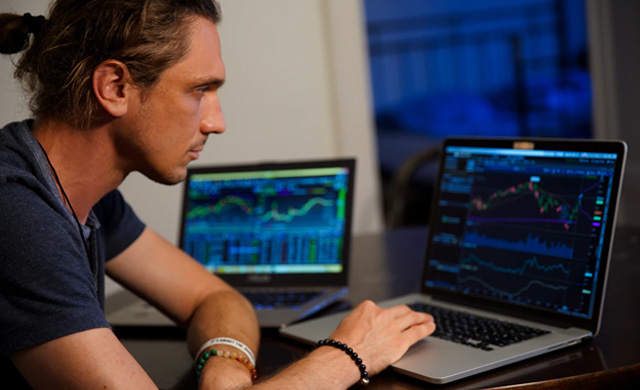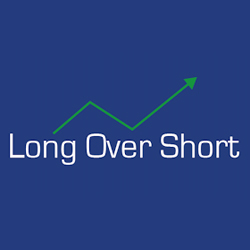The COVID-19 pandemic is still in full swing, affecting the lives of many around the world. The crisis has, without a doubt, changed the way we live. Worldwide lockdowns have been imposed, forcing many of us to stay indoors and work from home.

COVID-19 is more than a health crisis, it’s also an unprecedented economic crisis. It is something we have never seen before. The 2008 Financial Crisis was a financial heart attack, but many experts believe that the economic strain brought about by COVID-19 is far worse.
Stock Markets Crash
Major stock markets experienced the severity of COVID-19 in late March 2020. For instance, the Dow Jones Industrial Average fell 35 percent, while S&P suffered a 31 percent decline on March 23.
Different sectors were hit at varying levels. But the travel and energy sectors were hit the hardest.
As COVID-19 cases continue to rise, many countries have imposed travel bans, and this resulted in a steep decline in travel demand. Therefore, many airlines have declared bankruptcy or suspected operations. These airlines include Virgin Australia, South African Airways, and UK’s Flybe.
Meanwhile, oil giant Shell took a USD 22 billion hit because of the pandemic.
However, entering the second half of 2020, most sectors have been seen recovering. DJIA was slowly recovering. By the end of June, the index was down only 3.6 percent. S&P on the other hand experienced a 4.7 percent increase.
The U.S. Bureau of Labor Statistics reported in June that the unemployment rate in the country decreased, another sign that the economy is recovering.
However, complacency is not an option. The positive outlook for the financial markets is tentative, as a second wave of COVID-19 could be coming. Positive cases in countries that had previously beaten coronavirus are rising again after they eased restrictions.
Second Wave of COVID-19
Some countries in Europe are experiencing a fresh spike in positive cases. For instance, the UK and Spain recently posted its highest daily number of cases since May. UK Prime Minister Boris Johnson has imposed tighter restrictions for the rest of the year. Spain has also placed Madrid into lockdown. The U.S. is also seeing a resurgence in COVID-19 cases, particularly in its 22 states, following the reopening of its economy.
Economic Impact of a Second Wave
In recent months, many businesses have resumed operations which resulted in increased consumer spending.
However, a possible second wave will force countries to impose tighter measures to mitigate the spread of the virus. This would mean businesses will be forced to close. No business means no revenue, ultimately impacting their stock prices.
Furthermore, these closed businesses might have to lay off employees or cut salaries. This will result in consumers spending less.
Impact on Stock Market
A second wave will affect stocks at varying levels. During the first wave, we’ve seen that the sectors that took the hardest hit were travel, energy and banking. For the second wave, we’ll likely witness the same.
Due to travel bans globally, airlines will likely be the hardest-hit sector. As mentioned earlier, several airlines have already ceased operations and even filed for bankruptcy.
On the other hand, stocks of supermarket retailers, delivery, and tech companies will likely increase should a second wave occur. Stocks prices of Walmart, FedEx, Amazon, and Thermo Fisher Scientific experienced an uptick during the first wave.
As many around the world have had to work from home, the demand for tools that facilitate remote work has significantly increased. Stocks of Zoom, Slack, and Twilio have increased.
Chinese video-sharing platform TikTok has benefited from the lockdowns. It has become the breakout social media platform amid COVID-19.
Stocks to Buy Before a Second Wave Hits
Health stocks are surging amid the COVID-19 pandemic, so it only makes sense to invest in them. A second wave could be coming, but before it hits, we give you 3 stocks that you may consider buying:
Abbott Laboratories
Abbott Laboratories is an American healthcare company that has made waves during COVID-19. A second wave would drive the demand for its COVID-19 diagnostic tests. The company currently markets 6 COVID-19 tests, including its BinaxNOW antigen test. This USD5 per sample credit-card like test is considered a game changer in the industry, generating results within 15 minutes.
Abbot has won a contract worth USD750 million with the U.S. government to supply 150 million COVID-19 antigen tests.
Pfizer
Former richest man in the world Bill Gates considers Pfizer as the leader in the COVID-19 vaccine development.
The vaccine candidate of Pfizer and its partner, BioNTech, showed promise in its second early trial. The result of its late-testing is expected to be released by the end of October. If the vaccine turns out to be safe and effective, the FDA will probably approve it as soon as possible.
Pfizer has signed a USD1.95billion deal with the U.S. government to supply 100 million doses of the vaccine. The deal also allows the U.S. to buy another 500 million doses.
Teladoc Health
Teladoc Health is a virtual healthcare company providing access to medical care 24/7. During the first wave of COVID-19, people have shifted to using telehealth, and surveys showed that most of them liked it.
If a second wave happens, so could the use of telemedicine. This is why Teladoc is a smart investment choice during these difficult times.
What About the Forex Market?
In recent years, Forex trading has declined. Last year, there was a low market volatility as traders and investors were adamant in doing online currency trading. This tremendously affected the business of Forex brokers accepting US clients. The low trading volume meant low revenue for them.
But this year is a different story for the Forex market. During the first quarter of 2020, just when COVID-19 started hitting the global financial markets, the currency market experienced an increase in volatility. Many Forex companies benefited from this as more traders were engaging in trading.
For example, Danish broker Saxo Bank reported a remarkable increase in trading volumes. In February, the company reported an increase of 25.1 percent in trading volume at USD115 billion, the highest it has experienced since May 2019. Its trading volume increased by 38.5 percent at USD7.2 billion.
Now if a second wave of COVID-19 cases occurs, it’s safe to assume that it would drive the Forex market again, just like it did during the first wave.
When the World Health Organization upgraded COVID-19 to a pandemic, the currency market saw swings of up to 6 percent in several currency pairings.
As the pandemic worsened, most major currencies suffered massive declines. Both the Chinese yuan and Australian dollar suffered early declines. Therefore, investors were quick to shift to safe-haven currencies like the Japanese Yen.
Canadian dollar took a hard hit, as oil demand from China dropped. New Zealand’s kiwi was also down as tourism in the country felt the impact of COVID-19 big time.
But there’s one currency that survived through it. It’s none other than the US dollar. Market experts considered the greenback a safe bet amid COVID-19, and rightfully so, as the demand for it increased. This trend will likely continue if a second wave does hit.
Can Forex Brokers and Traders Prepare for the Second Wave?
The year 2020 is the year of Forex trading. With most people staying indoors and trying their luck in online investment like currency trading, Forex companies are reaping the rewards of increased trading volumes. And the increase in trading volumes will likely continue if a second wave hits.
Also, there is absolutely a tight competition among FX companies around the world, and demands of traders are rising. Thus, in order to stay ahead of competition, they must be able to provide clients innovative solutions to assist them in their trading journey.
Bottomline
A second wave of COVID-19 cases is something we’re not hoping for. Everyone is on edge during these difficult times, and everyone is just hoping for a safe and effective vaccine to be available. But all we can do right now is hope for the best, and do our part to stop the spread of coronavirus.
In the case of financial markets, a second wave could create turmoil. The stock market will surely be shaken, which is why investors must make smart investment decisions. On the other hand, a second wave will likely benefit the Forex market, as there will probably be an increase in trading volumes once again.


 Hot Features
Hot Features











